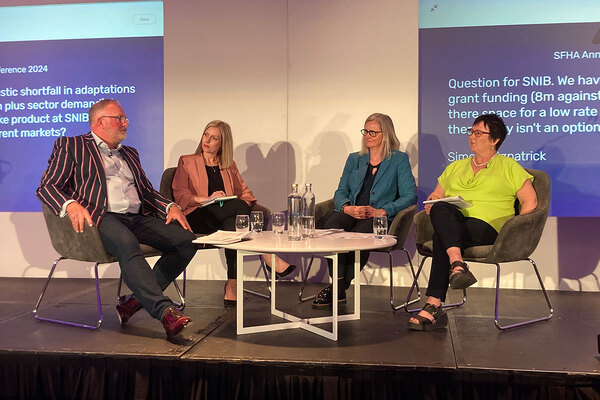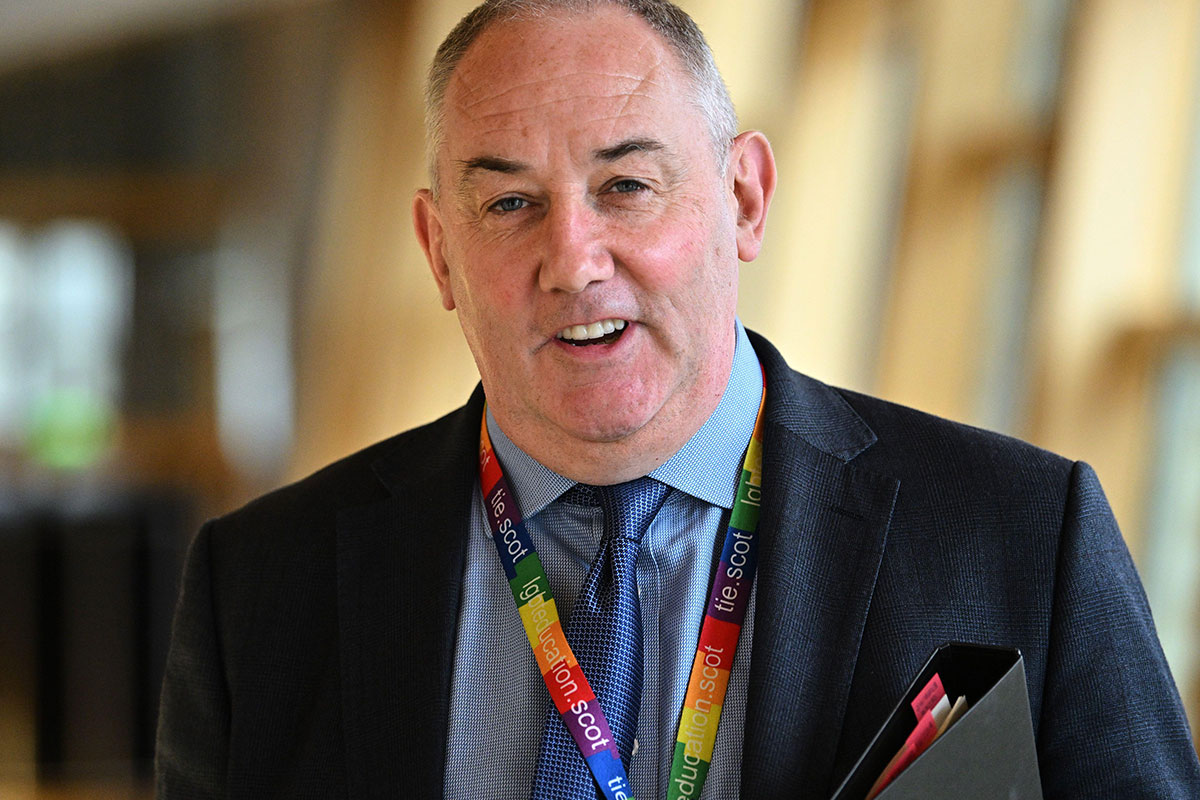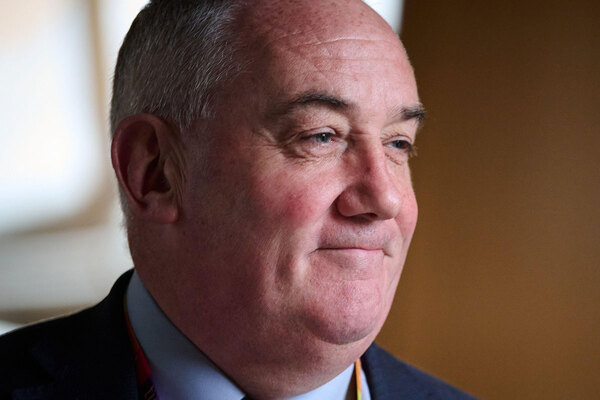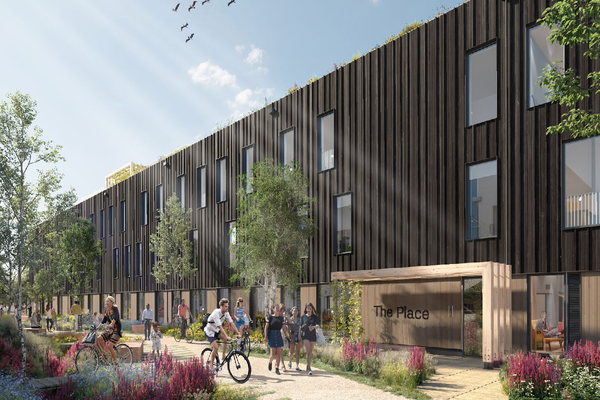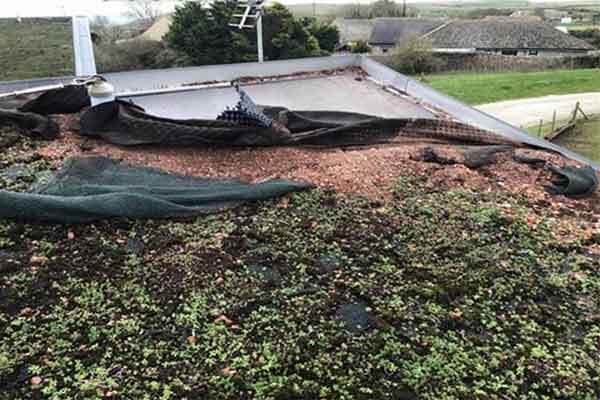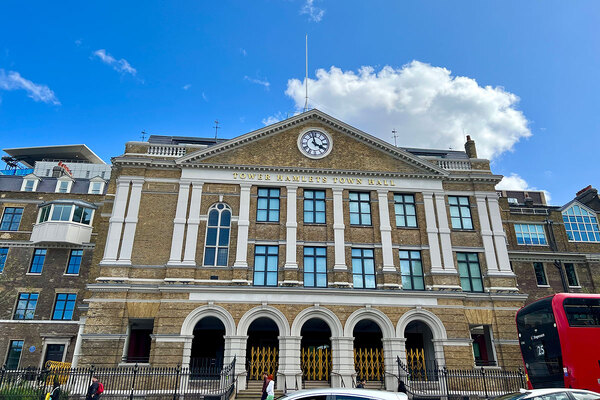You are viewing 1 of your 1 free articles
Dispatches from the Scottish Federation of Housing Associations conference 2024
James Riding rounds up the talking points from the Scottish Federation of Housing Associations annual conference in Glasgow

The Scottish housing sector assembled in Glasgow on 11 June for the Scottish Federation of Housing Associations’ (SFHA) annual conference after a pretty bruising 12 months. On top of the cost pressures affecting landlords’ development programmes, the country’s social housebuilding programme was cut by £200m at the start of the year.
Consequently, Sally Thomas, chief executive of SFHA, struck a sombre note as she began her opening address to the conference. The “hammer blow” cut, she said, was also a cut to the confidence of the sector.
The Scottish National Party (SNP)’s subsequent declaration of a nationwide housing emergency was scant consolation. To end on a note of hope, Ms Thomas praised the “countercyclical strength” of housing associations and quoted former US president Barack Obama. Yet, it was hard to escape the sense that the sector’s arguments are struggling to cut through to policymakers.
Over the two days of the conference, there were spirited debates on policy, speeches from high-profile campaigners and media figures, and even the interruption of a panel by an exasperated audience member. Here are the biggest talking points.
Finance woes and private capital
Nick Pollard, finance director at housing association Link Group, told delegates that 2023 was the most challenging year he had ever experienced in housing – worse than the global financial crisis of 2008.
In the wake of the budget cut, Scottish ministers have been keen to help housing associations attract more private finance. However, Ms Thomas said this should not be a replacement for public investment. Less government grant and more private funding mean more debt to repay, she added.
“The only place that can come is from [higher] rents,” she stated.
The following day, a political panel was convened to discuss Scotland’s big housing and planning challenges – but there was a very conspicuous absence on stage.
Delegates were addressed by Liberal Democrat MSP Willie Rennie and Labour and Conservative Glasgow councillors, but no one from the ruling SNP had opted to attend and defend the party’s housing record.
The omission prompted audience member Jim Strang, chair of Riverside Scotland, to stand up and exclaim: “Are they feart [afraid]?”
“This government [that] has cut £200m from the budget does not have the courtesy to attend a panel on such an important issue… Shame on them,” he added.
Speaking to Inside Housing on Wednesday morning, Scottish housing minister Paul McLennan said he wants to increase the housing budget “back to where it needs to be” and would ask the next UK government for more capital funding, which “would go into housing”.
There was some good financial news, too. Melanie Russell, regional head of housing at Lloyds Banking Group, revealed that the lender has been relaxing the repairs element in loan covenants for housing associations to free up cash for retrofit projects.
“It’s still dealt with on a case-by-case basis and I know all of the lenders do not necessarily have the same view, but… We think that that has released £3bn of capacity across the UK into the sector,” she told delegates.
Rent controls
In her opening address, Ms Thomas warned that the Housing Bill passing through Holyrood could see “the slow demise" of mid-market rent as a tenure by hitting it with rent controls.
Mr Pollard of Link Group echoed Ms Thomas’ call for a rethink of rent controls, telling ministers: “It’s not just about bearing down on rents, it is about making sure rents remain affordable while supporting a sector which is that engine of growth.”
During a political panel session n the second day, speakers laid into the Scottish government’s Housing Bill. Mr Rennie of the Lib Dems said that “we’ve got to remove mid-market rent from any proposals for rent controls”.
He continued: “In fact, we’re probably getting to the stage where we need to look at whether rent controls are sensible in the first place at all. Because we’ve seen some pretty clear evidence about the impact on the private rented sector in terms of investment.”
Given the minority SNP administration will need other parties’ support to pass the Housing Bill, rent controls could prove a critical debating point in the coming months.
The opportunity of a Labour government
On day one, guest speaker Alastair Campbell urged housing associations to “seize on this moment” of a general election and potential Labour government. It had been difficult for “pretty much any sector” to engage with ministers in the past few years of political tumult, the New Labour strategist said, but he hoped that new leadership would allow for deeper discussion of policy.
“Before you leave on Tuesday evening,” he said, make sure you “agree a clear sense of what you want to achieve and how you will achieve it”. Going by the big discussions of the event, reversing the budget cut and protecting mid-market rent from the Housing Bill will surely make that list.
Labour’s election manifesto makes planning reform one of its central pledges. If Keir Starmer has the courage to make bold reforms, it seems like he will have allies on the ground in Scotland.
On Wednesday’s political panel, Conservative Glasgow councillor Thomas Kerr made a frank admission that his city’s planning department “just does not function properly at all”.
“There is an atmosphere out there that Glasgow isn’t open for business,” he said. “It’s because we’ve had such an overtake of planners leaving in the last few years. We’ve lost that expertise; we’ve lost that experience.”
He said that Glasgow’s planning committee is “the longest in terms of timescale to get a planning application passed, but it’s also the dearest in terms of trying to get investment in as well”.
Labour councillor Soryia Siddique agreed that planning needed to be reformed. She said: “RSLs [registered social landlords] are having to wait sometimes years to get responsible plans [approved].
“What is our workforce plan? We’re cutting colleges… we need to upskill more people.”
Empty homes
On Wednesday, social housing campaigner Kwajo Tweneboa outlined some new research he is working on with Sky News about empty council homes in Britain. Freedom of Information requests to every council in the nation revealed 34,000 empty social homes, 6,000 of which had been empty for more than a year.
“Councils are saying they will go bust,” Mr Tweneboa said. “There is opportunity for them to be generating revenue through rent” here and the fact that they are not, is “severe failure on their part”.
He also warned that rents must be kept at an affordable level for tenants. “If rents become too high for residents, they start getting evicted and will end up homeless,” he said. “It could exacerbate the homelessness crisis and increase council spending on temporary accommodation.”
Sign up for our Scotland newsletter
Already have an account? Click here to manage your newsletters
